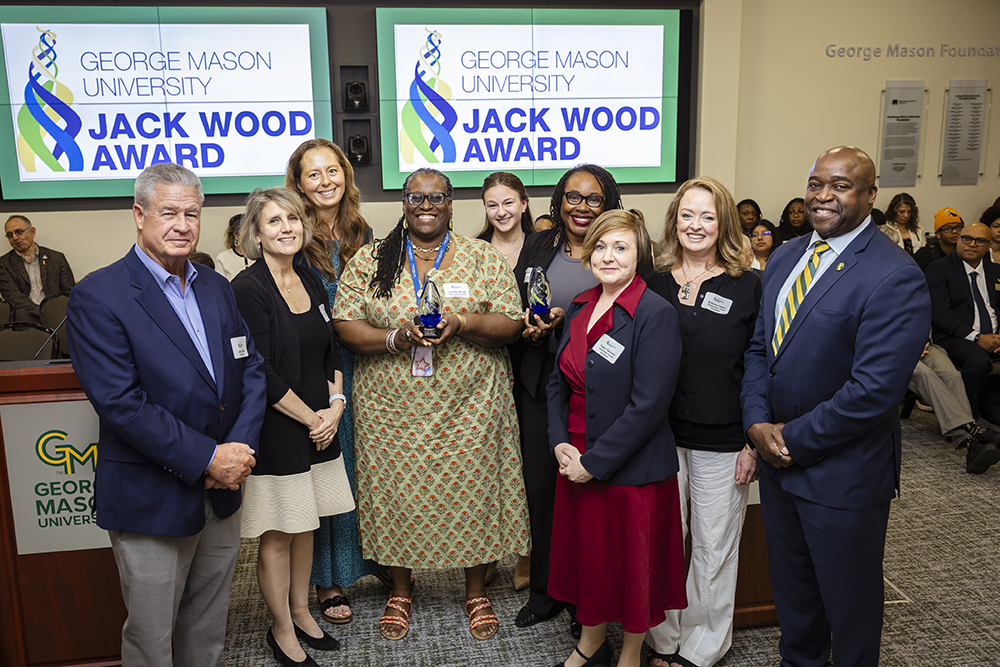In This Story
The George Mason College of Public Health’s Mason and Partners (MAP) Clinics, in partnership with the Prince William County Community Services Board (CSB), have been awarded the Jack Wood Award for Town-Gown Relations in the category of Partnership Initiative. This honor is bestowed on a remarkable collaboration between a George Mason entity and an external organization, representing the interconnection of the university and its communities.

The MAP Clinics were nominated by the Prince William CSB for the Jack Wood award. Together, the two organizations work to provide the residents of Prince William County, the City of Manassas, and Manassas Park with behavioral health services and treatment for substance use disorders.
“The award recognizes our joint launch of the Empowered Communities Peer Recovery Specialist Workforce Program in 2024. This innovative pipeline was created to address the behavioral health workforce shortage by training individuals with lived experience in recovery to become Certified Peer Recovery Specialists. This program stands as a model of how academic institutions and local government can co-create solutions that directly respond to community needs,” said Nancy Spencer, program manager of Empowered Communities, an umbrella organization designed to holistically address public health challenges through clinical intervention, community engagement, and workforce development.
Success in the Empowered Communities Peer Recovery Specialist Workforce Program’s first year includes:
-
100% intern retention in peer or community support roles post-completion
-
188.46% return on investment, reflecting measurable cost savings and system efficiency
-
Multiple interns transitioned into full-time roles, strengthening local mental health and substance use teams
-
High satisfaction among participants and stakeholders, with testimonials highlighting the program’s transformative impact
